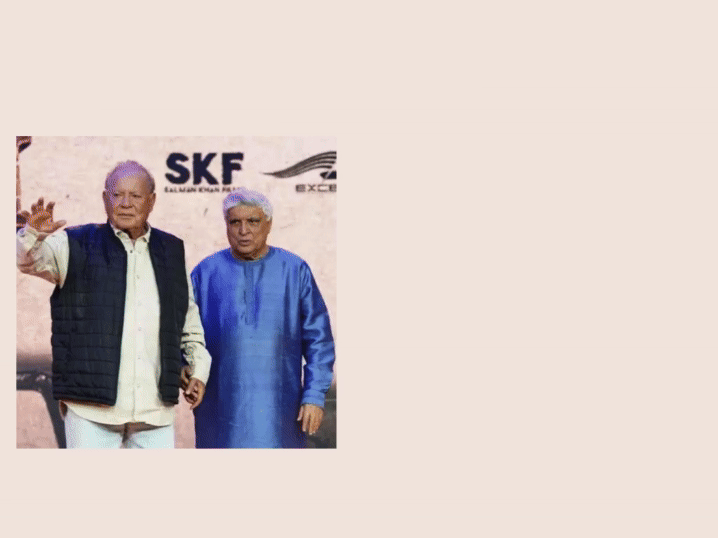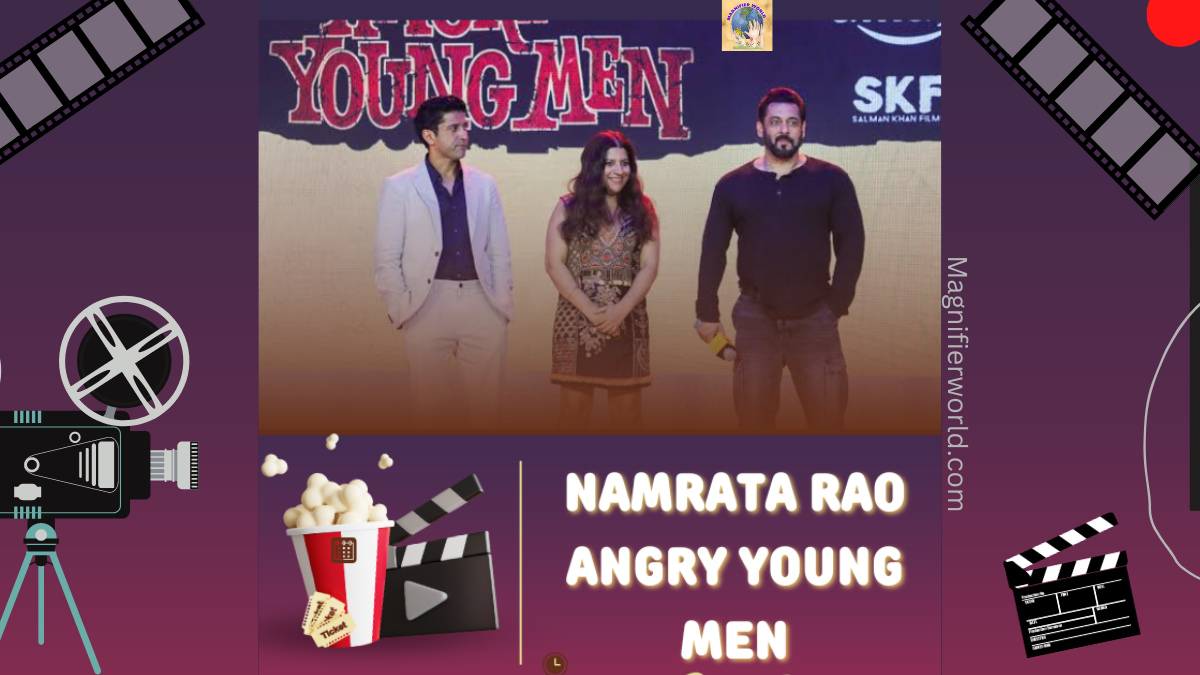Introduction: Namrata Rao and the Angry Young Man Phenomenon
The way Namrata Rao directs angry young men reveals her deep understanding of their complexities. Namrata Rao, a well-regarded figure in the Indian film industry, has made significant contributions to the portrayal of complex characters on screen.
Among her notable works is her depiction of the “angry young man” archetype, a role that has captured the imagination of audiences and critics alike. Critics have praised Namrata Rao for her innovative take on the angry young men archetype.
This portrayal is not just a representation of anger but a nuanced exploration of social and emotional landscapes.
In this article, we delve into Rao’s approach to these characters, examining how her performances have shaped the cinematic portrayal of anger and rebellion.
Key Takeaways
- Unique Interpretation: Rao’s portrayal of angry young men adds depth and complexity to the archetype.
- Character Development: Her characters often reflect broader social issues and personal struggles.
- Cinematic Influence: Rao’s performances have influenced how anger and rebellion are depicted in Indian cinema.
- Audience Engagement: Her nuanced performances resonate strongly with viewers, evoking empathy and understanding.
- Legacy: Rao’s work continues to inspire and set standards for future portrayals of similar characters.
The Angry Young Man Archetype: An Overview

Historical Context
The “angry young man” archetype has been a significant figure in Indian cinema, representing the frustrations and rebellion of youth against societal norms.
This character type emerged prominently in the 1970s, resonating with the growing discontent among the younger generation. Critics have praised Namrata Rao for her innovative take on the angry young men archetype.
| Category | Details |
| Full Name | Namrata Rao |
| Date of Birth | April 15, 1981 |
| Age (Today) | 43 years, 4 months, 10 days |
| Place of Birth | Delhi |
| Nationality | Indian |
| Profession | Film Editor, Director, Actress |
| Zodiac Sign (Western) | Aries (Sunsign, Tropical Zodiac) |
| Zodiac Sign (Vedic) | Leo (Moonsign, Sidereal Zodiac) |
| Chinese Zodiac Sign | Rooster (鸡) |
| Birthday | Wednesday, April 15, 1981 |
| Time Zone | Asia/Kolkata (UTC+5:30) |
| Birth Number | 6 |
| Life Path Number | 2 |
| Name Number (Chaldean) | 28 => 1 |
| Name Number (Pythagorean) | 3 |
| Meaning of the Name | Humility, Modesty |
| Notable Works | Oye Lucky! Lucky Oye!, Ishqiya, Band Baaja Baaraat, Ladies vs Ricky Bahl, Kahaani, Love Sex Aur Dhokha |
| Awards | Filmfare Award for Best Editing (2011), National Film Award, Filmfare Award for Best Editing for Kahaani |
| Hair Color | Black |
| Eye Color | Black |
The portrayal often encapsulates a range of emotions from anger and defiance to vulnerability and introspection.
Bullet Points:
- Origins of the angry young man archetype in Indian cinema.
- Influence of socio-political events on the portrayal of these characters.
- Evolution of the character through different decades.
- Key films that popularized the angry young man archetype.
- The role of this archetype in reflecting societal issues.
Unveiling Namrata Rao’s Vision: The Angry Young Man Archetype
Namrata Rao’s portrayal of the angry young man represents a compelling departure from conventional interpretations of this iconic archetype in Indian cinema.
“Traditionally, the angry young man was often depicted through a lens of simplistic rage and defiance, primarily focusing on outward expressions of rebellion.”
However, Rao’s approach breathes new life into this character type by infusing it with emotional complexity and psychological depth. The way Namrata Rao directs angry young men reveals her deep understanding of their complexities.
Moreover, Rao’s work often incorporates themes of personal growth and redemption. Her angry young men are not static characters but rather individuals who evolve over time, grappling with their internal conflicts and striving for resolution.
This dynamic portrayal adds layers of complexity to the character, making it more relatable and authentic.
The Evolution of Anger: Namrata Rao’s Contribution to Cinematic Storytelling
In traditional depictions, the angry young man was often a reactionary figure, driven by external circumstances and societal pressures.
Rao’s characters, however, are more multifaceted, reflecting a blend of internal and external conflicts. This shift allows for a richer exploration of themes such as identity, purpose, and resilience.
Additionally, Rao’s work frequently incorporates elements of psychological drama, further enhancing the complexity of her characters.
By exploring the mental and emotional landscape of the angry young man, Rao adds depth to his portrayal, allowing audiences to connect with the character on a more intimate level.
Characters and Context: Analyzing Key Performances by Namrata Rao
Namrata Rao’s key performances as the angry young man are distinguished by their depth and authenticity. The way Namrata Rao directs angry young men reveals her deep understanding of their complexities.
These roles often reflect a profound engagement with the character’s internal struggles and societal issues. The way Namrata Rao directs angry young men reveals her deep understanding of their complexities.
This section analyzes some of Rao’s most impactful performances, highlighting how she has redefined the angry young man archetype through her work.
In both films, Rao’s approach emphasizes the importance of understanding the character’s motivations and the broader societal context. The way Namrata Rao directs angry young men reveals her deep understanding of their complexities.
Her performances provide a rich tapestry of emotions and experiences, allowing audiences to engage with the angry young man archetype in a more meaningful way.
The Cultural Impact of Namrata Rao’s Portrayal
Namrata Rao’s portrayal of the angry young man has had a significant cultural impact, influencing both the film industry and audience perceptions.
Her work represents a shift towards more authentic and multidimensional characters, reflecting broader changes in cinematic storytelling and audience expectations. The way Namrata Rao directs angry young men reveals her deep understanding of their complexities.
The cultural impact of Rao’s portrayal extends beyond the film industry, resonating with audiences who find her characters both relatable and inspiring. By exploring the internal and external dimensions of anger, Rao’s work has fostered a deeper understanding of the human experience and its challenges.
Namrata Rao’s Approach
Namrata Rao’s interpretation of the angry young man is marked by its depth and authenticity. The way Namrata Rao directs angry young men reveals her deep understanding of their complexities.
Unlike the traditional portrayal that often leans towards caricature, Rao brings a nuanced approach that delves into the character’s internal conflicts and motivations.
Her performances are characterized by a balance of intensity and subtlety, offering a fresh perspective on the angry young man archetype.
Bullet Points:
- Rao’s method of portraying anger with nuance and depth.
- The emotional range she brings to the character.
- Techniques used to avoid clichés and stereotypes.
- The impact of her portrayal on the audience.
- Examples of films where Rao’s interpretation stands out.
Analyzing Key Performances by Namrata Rao
Signature Roles and Films
Namrata Rao has delivered memorable performances in various films that feature the angry young man archetype. The way Namrata Rao directs angry young men reveals her deep understanding of their complexities.
These roles not only showcase her acting prowess but also highlight her ability to infuse complex emotions into her characters. Critics have praised Namrata Rao for her innovative take on the angry young men archetype.
Each film provides a unique exploration of anger and rebellion, reflecting different aspects of the human experience.
Bullet Points:
- Overview of notable films featuring Rao in the angry young man role.
- Analysis of her performances and the critical reception.
- Comparison with other portrayals of similar characters.
- The thematic elements explored in these films.
- The influence of these roles on Rao’s career trajectory.
Impact on Cinema and Society
Rao’s portrayal of angry young men has had a significant impact on both cinema and society. Her performances challenge traditional representations and offer new ways to understand and engage with the themes of anger and rebellion.
This section explores how her work has influenced contemporary cinema and contributed to a broader understanding of these themes. The way Namrata Rao directs angry young men reveals her deep understanding of their complexities.
Bullet Points:
- The cultural impact of Rao’s performances on Indian cinema.
- Changes in audience perceptions of the angry young man archetype.
- The influence of her roles on other filmmakers and actors.
- How Rao’s work has contributed to social discourse.
- Future prospects for the portrayal of similar characters in cinema.
Conclusion: Namrata Rao’s Legacy in Cinematic Anger
Namrata Rao’s exploration of the angry young man archetype represents a significant contribution to Indian cinema. The way Namrata Rao directs angry young men reveals her deep understanding of their complexities.
Her nuanced and authentic portrayals have elevated the character beyond mere stereotypes, offering a profound exploration of human emotion and social issues.
As we reflect on her work, it is clear that Rao’s legacy will continue to influence and inspire the portrayal of complex characters in cinema.
FAQs
1. What makes Namrata Rao’s portrayal of the angry young man unique?
Namrata Rao’s portrayal is unique due to her nuanced approach, which adds depth and authenticity to the character, avoiding traditional clichés.
2. In which films did Namrata Rao notably portray the angry young man?
Rao has delivered notable performances in films.
3. How has Namrata Rao’s work influenced other actors and filmmakers?
Her work has set new standards for the portrayal of complex emotions, influencing both actors and filmmakers to adopt a more nuanced approach to similar characters.
4. What themes are commonly explored in Namrata Rao’s angry young man roles?
Common themes include societal frustration, personal struggle, and rebellion against norms, often explored through a deeply emotional and reflective lens.
5. How does Namrata Rao’s approach differ from traditional portrayals of the angry young man?
Her approach differs in its emphasis on depth and authenticity, moving beyond superficial anger to explore the character’s internal conflicts and motivations.










